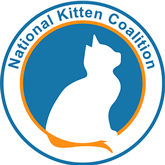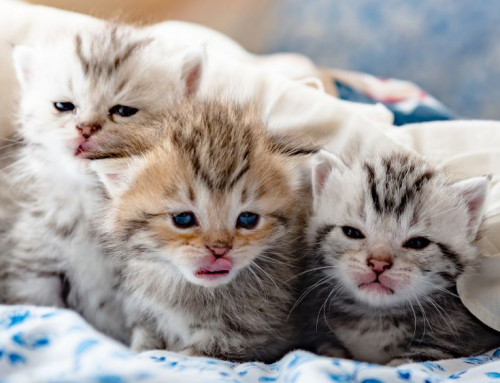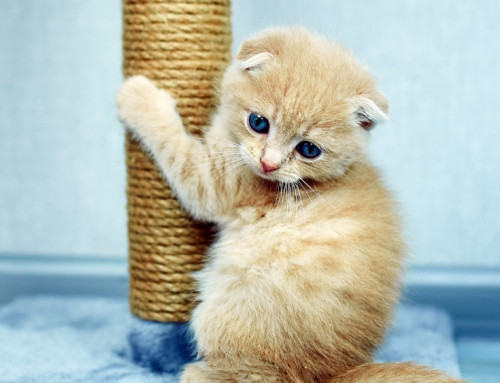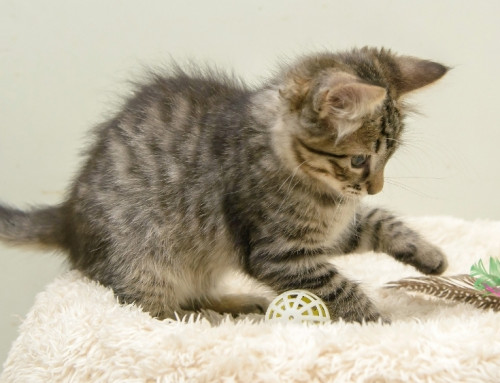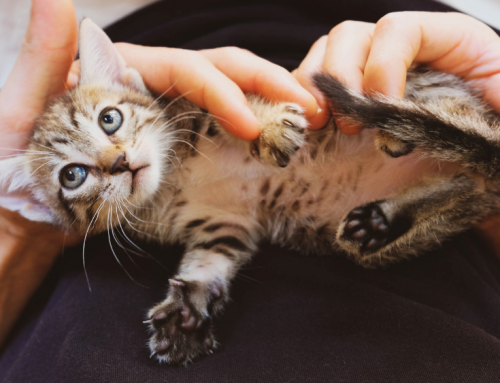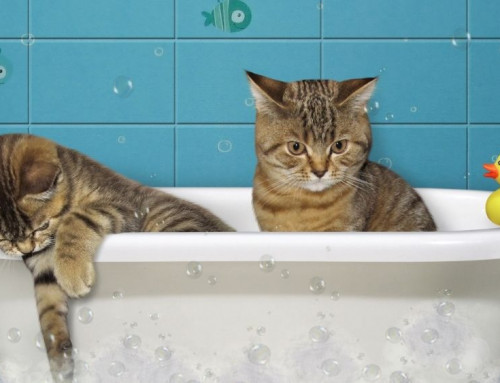Share this resource or email it to a friend!
Upper respiratory infections (URIs) are very common in kittens, especially in kittens living in high-density populations in animal shelters, community cat colonies or breeding catteries.
URIs may be caused by infections that are: viral, such as calicivirus or herpesvirus; bacterial, such as chlamydia or bordetella; and even fungal. Infections can be mild or severe and require different treatments.
Calicivirus and herpesvirus are transmitted by direct contact with an infected cat’s saliva, discharges from the eyes and nose, aerosol droplets that spread when cats sneeze or inanimate objects (e.g., clothing, food and water dishes, furniture) that have been contaminated.
Calicivirus can live up to 1 month in the environment, but 7-14 days is more common. Herpesvirus can only live 1-2 days in the environment; once it dries, which can occur in a few hours, it dies.
An estimated 97% of cats are exposed to herpesvirus during their lifetimes, and it’s the most common underlying cause of URI. However, calicivirus and herpesvirus are species specific meaning that you cannot catch them from your kittens or cats.
Here’s one of the many reasons why it’s important to foster kittens until they’re ready for adoption. Eighty percent of cats get herpesvirus within 2 weeks of entering an animal shelter, most likely due to stress. The stress may be caused by keeping them in small cages where there isn’t separation between their food, water, bedding and their litter box. In addition, stress may be caused by moving cats in and out of their cages during cage cleaning. Fortunately, more and more shelters are providing cages and handling for cats that minimize stress.
General symptoms of URI include:
- clear or colored discharge from the eyes or nose
- swelling of the tissue around the eyes, known as conjunctivitis
- sneezing
- coughing
- ulcers in the mouth
- fever, lethargy and/or anorexia (loss of appetite)
If you suspect that your kitten has a URI, seek advice from the animal shelter or rescue organization through which you are fostering or have adopted. Your kitten may need to be examined and treated.
While waiting to get your kitten examined, there are a few things that you can do at home to make your kitten as comfortable as possible; this is known as supportive care:
- Provide a warm environment for your kitten. Humidifiers or time in a steamy bathroom can be helpful to prevent or treat congestion.
- Keep your kitten’s eyes clean and nostrils unobstructed by gently softening and wiping away crusted discharge with a warm, wet cloth. This can be done frequently, but take care not to cause unwanted irritation of the skin around the eyes and nose.
- Ensure your kitten is getting good nutrition. Appetite is stimulated by smell and if your kitten can’t smell because her nostrils are covered or congested with discharge, she may eat only a small amount or nothing at all. Try enticing her with warmed, strong-smelling fish-based canned kitten food. Calories are very important while fighting off an infection!
While providing supportive care and waiting for your kitten to be examined, weigh your kitten daily and, if possible, take her temperature daily. Watch your kitten closely and keep notes about her condition. Get her immediate medical care if you observe:
- yellow or green eye or nasal discharge
- bloody discharge after sneezing
- difficulty breathing
- significant loss of appetite
- significant weigh loss
Your notes may help the animal shelter, rescue or your veterinarian decide on diagnostic testing such as a blood cell count, x-rays of the chest to rule out pneumonia, and even a PCR (polymerase chain reaction) test to determine which virus is causing the URI.
Treatments may include a combination of the following, depending on symptoms:
- eye medications
- nasal decongestants
- oral antibiotics (It’s recommended that any kitten taking antibiotics also receive a probiotic supplement.)
- antiviral medications
- anti-inflammatory medications
- supplements
Vaccination is key to preventing URI due to herpesvirus and calicivirus in kittens. They should receive a series of FVRCP vaccinations against feline viral rhinotracheitis (aka herpesvirus), calicivirus and panleukopenia starting at 6 weeks of age (some shelters may start as early as 4 weeks) and every 3-4 weeks until they’re 16-20 weeks of age. Let’s wipe out URIs!
